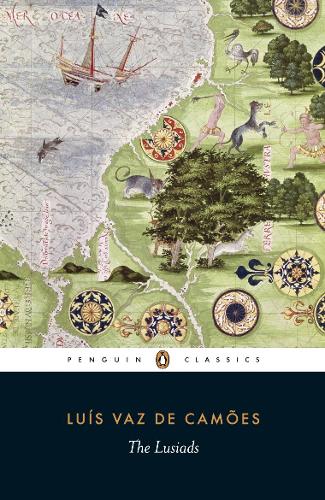
The Lusiads
(Paperback)
Publishing Details
The Lusiads
By (Author) Luis Vaz de Cames
By (author) William Atkinson
Penguin Books Ltd
Penguin Classics
2nd September 2007
United Kingdom
Classifications
General
Non Fiction
869.12
Physical Properties
Paperback
256
Width 131mm, Height 200mm, Spine 15mm
192g
Description
one of the greatest poems of the Renaissance First published in 1572, The Lusiads is one of the greatest epic poems of the Renaissance, immortalizing Portugal's voyages of discovery with an unrivalled freshness of observation. At the centre of The Lusiads is Vasco da Gama's pioneer voyage via southern Africa to India in 1497-98. The first European artist to cross the equator, Camoes's narrative reflects the novelty and fascination of that original encounter with Africa, India and the Far East. The poem's twin symbols are the Cross and the Astrolabe, and its celebration of a turning point in mankind's knowledge of the world unites the old map of the heavens with the newly discovered terrain on earth. Yet it speaks powerfully, too, of the precariousness of power, and of the rise and decline of nationhood, threatened not only from without by enemies, but from within by loss of integrity and vision.
Author Bio
Camoens, Luiz, 1524-1580, Portuguese poet born in Lisbon. He travelled to the Red Sea, Persia and Mozambique and spent some years in Goa, India. After his return to Lisbon in 1572, he published 'The Lusiads' recalling the voyages of Vasco da Gama - a work that became the national epic of Portugal.
